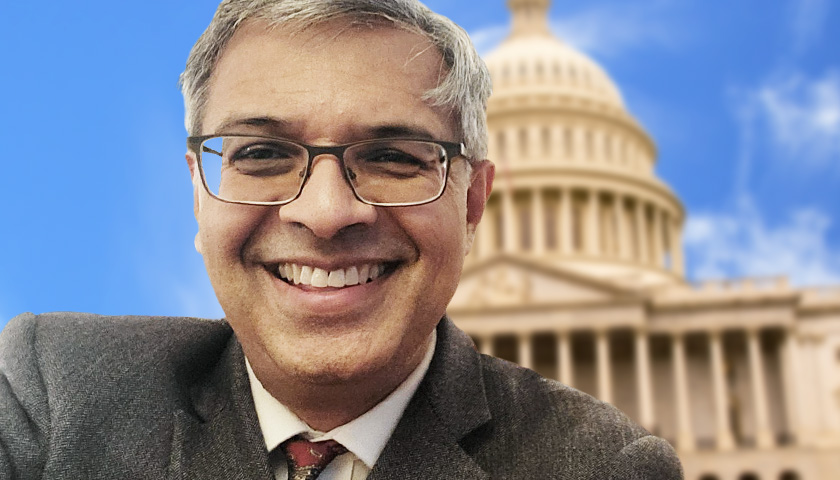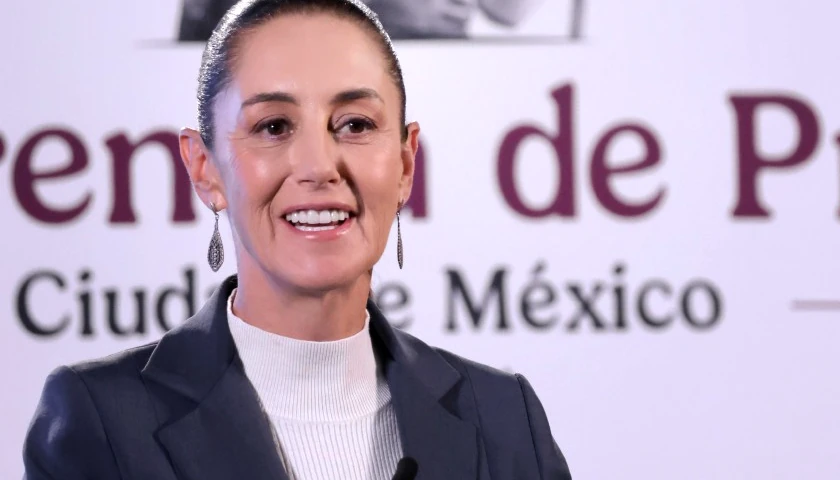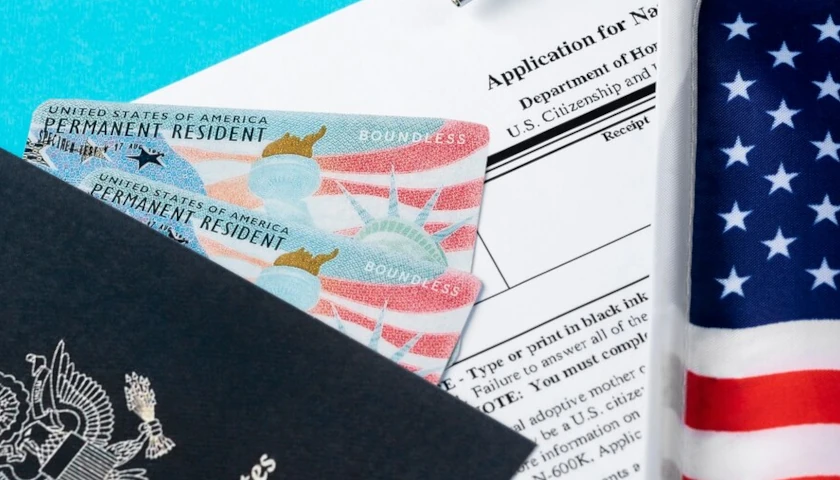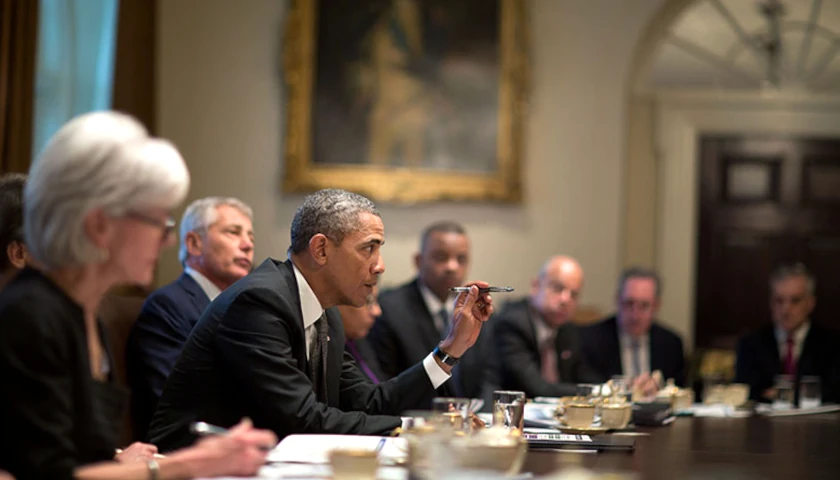by Greg Piper
Proponents of once-dominant COVID-19 views and policy, from the natural origin of SARS-CoV-2 to mandatory lockdowns, remote learning, masking and vaccines, often chose between two strategies to marginalize dissenters.
They flooded medical licensing boards with complaints against doctors such as Minnesota’s Scott Jensen, who faced new investigations from Democratic Gov. Tim Walz’s administration after announcing his candidacy for governor, or sought to destroy their reputations in general, scientific and social media, calling them racist, cold-hearted and “fringe.”
The Supreme Court will soon vote on hearing a First Amendment case that could put the kibosh on such license investigations, while COVID catechists are making a last-ditch effort to stop Senate confirmation of an epidemiologist targeted by name by his predecessor.
Justice Clarence Thomas scheduled a judicial conference for Jan. 10, spotted by Reclaim the Net, on whether to block Washington state’s crusade against doctors based on their COVID views before the 9th U.S. Circuit Court of Appeals rules in the case by NBA legend John Stockton, Robert F. Kennedy Jr.’s Children’s Health Defense and several doctors.
The plaintiffs’ application for injunction, rejected by Justice Elena Kagan on Nov. 20, also invites the high court to accept the whole case “to provide a definitive nationwide ruling on whether physicians’ public speech is fully protected” and requires the strict-scrutiny standard of judicial review, given “an ongoing nationwide campaign to censor dissenting speech.”
Scientific American raised eyebrows with a Dec. 19 opinion essay that allegedly retcons the mainstream response to Stanford medical professor Jay Bhattacharya, nominated by President-elect Trump for National Institutes of Health director, who is also a plaintiff in a First Amendment lawsuit rebooted after an early SCOTUS setback.
Its sibling Nature Medicine required the authors of “Proximal Origin,” covertly shaped by then-NIH Director Francis Collins and then-National Institute of Allergy and Infectious Diseases Director Anthony Fauci, to completely rule out a COVID lab leak before it would publish their paper, which cemented natural origin as gospel.
Bhattacharya made himself persona non grata with the public health establishment in spring 2020 by running a seroprevalence study in Stanford’s backyard that found infection was already widespread before lockdowns, undermining elite narratives of COVID’s universal risk.
Months later he cowrote the Great Barrington Declaration against lockdowns and in favor of “focused protection” for populations most vulnerable to COVID, which played a role in Stanford faculty pressuring the university to dump the Hoover Institution, with which Bhattacharya and fellow lockdown critic Scott Atlas are affiliated.
Bhattacharya accused university leadership of cowardice for not speaking against faculty efforts to censor him, Atlas and meta-research pioneer John Ioannidis, whose seroprevalence studies similarly undermined COVID narratives and who first warned of the weak evidence for drastic mitigation efforts he compared to “an elephant being attacked by a house cat.”
Collins told Fauci, who is now a non-teaching professor at Georgetown, that he wanted a “quick and devastating public take down” of the “fringe epidemiologists” who wrote the GBD, because they were “getting too much traction” and it was even signed by “a Nobel Prize winner,” Stanford biophysicist Michael Levitt.
Bhattacharya told Just the News, No Noise before President Biden’s reelection withdrawal that he was working on a public health reform plan for the next president, which would remove large pharmaceutical influence from the Food and Drug Administration and refocus the Centers for Disease Control and Prevention away from politics and back on science.
He has appeared several times on John Solomon Reports, which compiled Bhattacharya’s interviews for a Christmas Eve episode.
“It’s like a knee-jerk reaction,” Bhattacharya said when schools in red states started shutting down again in response to rising COVID numbers last year. “It’s like they can’t let go of the fear and the failed pandemic plans” despite the fact that nearly everyone has immunity from infection and vaccines, making COVID risks much lower going forward.
“It’s going to end up harming … children and working-class people, again and again, until we decide that we’re going to treat this like we treat other threats to human health,” he said.
Bhattacharya called Biden a “pharmaceutical company’s best spokesman” when the president sought more funding for an updated COVID vaccine without a “randomized trial to point to … You can’t just treat this booster as if it were just a flu vaccine booster.”
He warned that “if you keep recommending something that the public is going to ignore” – booster uptake was then below 20% – “at some point, all trust in public health will collapse.” Bhattacharya is also a strong skeptic of masking’s effectiveness, citing its poor results in multiple systematic reviews.
SciAm‘s new essay by University of Pittsburgh “community health and social justice” professor Steven Albert denied Bhattacharya was ever censored by the feds, claiming against evidence including Twitter Files that “social media venues … dropped his messaging” without coercion, in response to “scientific evidence” for mask and vaccine mandates.
“Science supported school closures, work-from-home policies, large gathering restrictions in public spaces, and face mask requirements as effective ways to lower hospital surges and buy time for vaccine development,” Albert speculated. “You can challenge the science, as many have; but it is not authoritarian to use science for policy.”
Though it’s not in the essay’s body, SciAm‘s subhead warns of Bhattacharya’s nomination amid a “possible bird flu outbreak looming,” which former CDC Director Robert Redfield recently warned was more likely because of American research he believes could make H5N1 viruses easily transmissible between humans.
Gain-of-function research is also in the news because of a Wall Street Journal report on a study by Defense Intelligence Agency scientists that concluded COVID was “manipulated in a laboratory in a risky research effort” but was excluded from DIA’s briefing to President Biden in August 2021. DIA’s inspector general reportedly opened an investigation on the omission.
The Dec. 19 takedown of Bhattacharya is Albert’s second essay in SciAm. His first, reproduced from a different publication, predicted that following the GBD would “result in overwhelmed hospital systems and skyrocketing mortality” and not produce herd immunity.
Albert called Bhattacharya a threat to science and people’s health in part because the Stanford physician bemoans what he calls “the authoritarian tendencies of public health.” This is “a screen for pushing a particular agenda that is likely to damage the NIH,” pitting “personal autonomy against evidence-based public health science,” Albert wrote.
It’s par for the course for SciAm, which consistently sacralized the feds’ views under its editor-in-chief Laura Helmuth, who suddenly resigned after the election amid blowback for her profanity-laden tirade against Trump’s supporters in Bluesky posts shared by former SciAm columnist Michael Shermer and investigative journalist Paul Thacker.
Helmuth called Redfield a conspiracy theorist for favoring the lab-leak theory – a charge soon echoed by SciAm and Nature – right as mainstream scientists were reconsidering its validity, as Thacker reported for the British Medical Journal in 2021.
She was a lightning rod at the magazine since taking over in 2020, mocked by Shermer for approving an article on math as racist and scrutinized by BMJ for opposing any research that questions the benefit of puberty blockers, cross-sex hormones and surgeries for gender-confused children.
– – –
Just the News reporter Greg Piper has covered law and policy for nearly two decades, with a focus on tech companies, civil liberties and higher education.
Photo “Jay Bhattacharya” by Jay Bhattacharya. Background Photo “United States Capitol” by David Maiolo. CC BY-SA 3.0.








